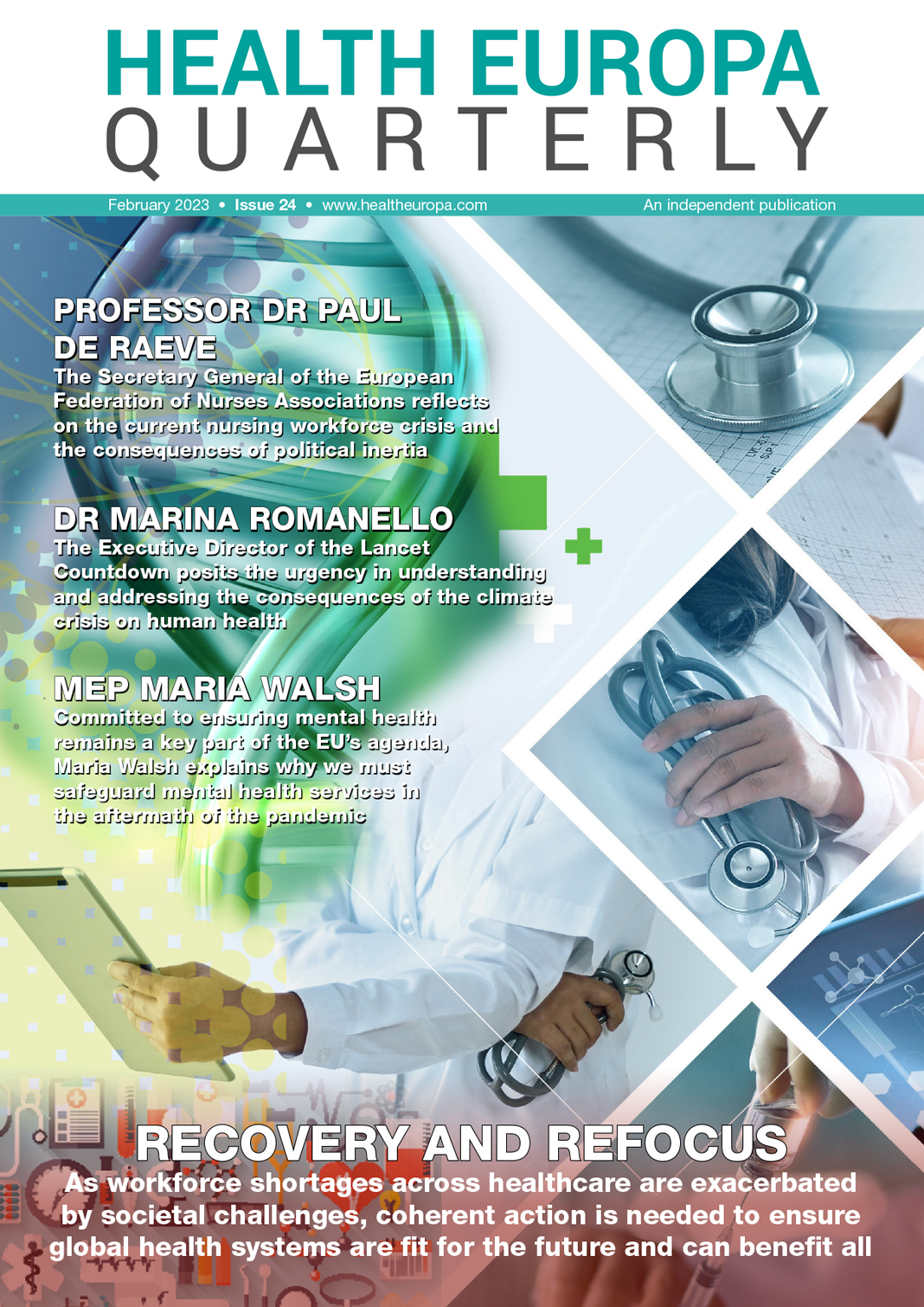Welcome to Health Europa Quarterly Issue 24. In this issue, you will find insight into the nursing workforce crisis, ethnic inequalities in maternal healthcare, the role of lifestyle medicine in gut health and much more.
What does the recovery of the healthcare system look like? This question forms a vital part of many of the articles featured in this issue of Health Europa Quarterly. What is abundantly clear, taking into account the challenges impacting the delivery of care today, is that recovery must also encompass reimagination. As this issue’s foreword by Dr Ayoade Alakija points out, we must acknowledge and learn from the failings exposed during the pandemic to ensure more equitable healthcare, and build a global health system that works cohesively to tackle future pandemics.
Of course, health systems cannot function optimally without a strong workforce. As well as safeguarding patients, designing health systems that fully support and nurture its staff is integral to recovery. On the current trajectory, the World Health Organization (WHO) has estimated a shortfall of ten million health workers by 2030, mostly in low- and lower-middle-income countries. Disparities in the global supply and retention of health workers are discussed in our interview with Pedro Delgado, Vice President of the Institute for Healthcare Improvement, who highlights the need for more holistic strategies to aid healthcare recruitment – from promoting the profession in schools to continually investing in, training and protecting the wellbeing of health workers throughout their career. He also points out that only by addressing equity gaps in healthcare can the system be truly equal.
Ramifications from the pandemic are being compounded by other societal challenges which, if not suitably addressed, could have long-term implications for public health. On page 76, you will find an interview with Dr Tammy Boyce from the UCL Institute of Health Equity, who discusses the effects of the health system on the economy and how these are interlinked. Following a similar theme, we spoke to MEP Maria Walsh about the social and economic costs of poor mental health and her efforts to keep mental health on the agenda at the European level. The latest figures show that the consequences of mental illness cost the EU €600bn per year, a figure only expected to increase as a result of the pandemic.
Making health systems more resilient is not only paramount for improving access to care but to ensure they can withstand the increasingly widespread effects of climate change. Head over to page 92 where we discuss key outcomes from COP27 and the latest Lancet Countdown with the report’s Executive Director, Dr Marina Romanello. A subsequent interview with lifestyle medics Dr Sheena Fraser and Dr Siobhan McCormack relates the extensive workings of the gut microbiome and its intricate connection to human and planetary health.
Inside this issue, you will also find our regular features on infection control, diseases and conditions and health policy, which include insightful contributions from the likes of the London School of Hygiene and Tropical Medicine, the WHO, the European Scientific Working group on Influenza and other Respiratory Viruses, United European Gastroenterology and the European Psychiatric Association.
It is gratifying to be a platform for these critical discussions surrounding public health, and despite the unprecedented challenges many industries are facing, I hope you find the following pages as informative and galvanising as I have in their collation.



